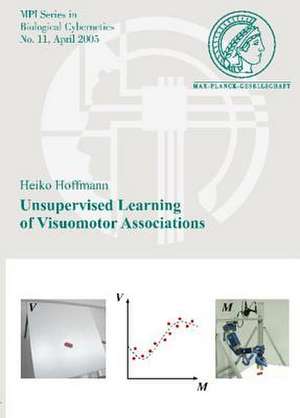Unsupervised Learning of Visuomotor Associations: Mpi Series in Biological Cybernetics, cartea 11
en Limba Engleză Paperback
Preț: 441.09 lei
Nou
Puncte Express: 662
Preț estimativ în valută:
84.40€ • 88.13$ • 69.70£
84.40€ • 88.13$ • 69.70£
Indisponibil temporar
Doresc să fiu notificat când acest titlu va fi disponibil:
Se trimite...
Preluare comenzi: 021 569.72.76
Specificații
ISBN-13: 9783832508586
ISBN-10: 3832508589
Pagini: 188
Editura: Logos Verlag Berlin
Seria Mpi Series in Biological Cybernetics
ISBN-10: 3832508589
Pagini: 188
Editura: Logos Verlag Berlin
Seria Mpi Series in Biological Cybernetics















